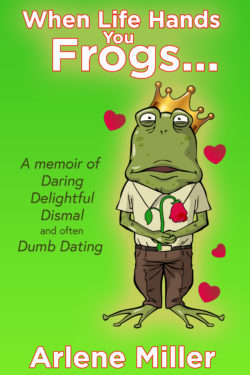I am happy to present another guest post by Jags Arthurson.
Jags Arthurson is the pen name of a Brighton, UK writer. Jags has been a research chemist and company director. He has lived and worked in over 40 countries. His novel, the crime thriller Pagan Justice, is available on Amazon with all proceeds going to charity.
——————————————-
It may truly be said that, “Arlene Miller writes with authority and a ballpoint pen.”
 Until we come across a sentence like that, few of us would even realise that it was possible to make an error using a simple conjunction but, to rub salt into the grammatical wound, there is even a word for it: zeugma, where a single word is used with two other parts of a sentence but must be understood differently in relation to each.
Until we come across a sentence like that, few of us would even realise that it was possible to make an error using a simple conjunction but, to rub salt into the grammatical wound, there is even a word for it: zeugma, where a single word is used with two other parts of a sentence but must be understood differently in relation to each.
As any student of language knows, grammar is fluid and varies from one language or dialect to another or even within a single language over time. Because it is so fluid, grammar needs rules … purely artificial, but rules nonetheless … to ensure we all understand each other. For instance, how many of us had it beaten into us at school that we must never split an infinitive? Then years later we heard that Captain James T Kirk and his merry crew aboard the Starship Enterprise were allowed “to boldly go.” The grammar police went into meltdown.
Each grammar rule must have a name. And any infringement of one of those rules also needs a name: zeugma is just the start.
The reverse of zeugma is syllepsis where a single verb is used in relation to two other parts of a sentence although the word grammatically or logically applies to only one: Both Tom and his lease expired on the same day.
In the first case the conjunction, with, has caused the verb phrase write with to have one meaning in respect to the adjective, authority, and a different meaning to the physical object, the pen. In the second the and has caused the verb to take on, simultaneously, two different meanings in respect to the two nouns: Tom and lease.
Zeugma and syllepsis are often used interchangeably.
When we were young my brother and I had a game involving zeugma and syllepsis (and heteronyms: two words that are spelled the same but pronounced differently) to create sentences that either could not be written or could not be said. For instance, try saying While the violinist played, the conductor acknowledged the audience. They were both bowing.
(What has the X-box done for childhood? I ask myself.)
Let’s look at some more odd words.
Diazeugma has nothing to do with zeugma but is where several verbs are strung together for a single subject: We’ll live, love, laugh, and be happy.
What do the words psychology, knowledge, and ascent have in common? Silent letters. But did you know that when you say those words you actually elide those letters?
And while we’re leaving things out, why not indulge in a little haplology? That’s missing out whole syllables when we speak … we all prob’ly do it from time to time.
Of course, leaving things out can lead to problems. For instance, we can omit vowels when we contract phrases, so would not becomes wouldn’t. NOT, you’ll notice wouldn’t because the n’t has become a clitic … that is, a contraction that cannot (or can’t) stand on its own.
If you’ve had enough of omitting things, we could add things.
How about, for example, injecting a little humour with the use of paraprosdokian by adding an unexpected twist at the end of a sentence? My dog loves children … but he’s never eaten a whole one. Or how about Robert Bloch’s gruesome, Despite my ghoulish reputation, I really have the heart of a small boy. I keep it in a jar on my desk?
One of my pet hates is RAS Syndrome, which is the redundant use of a word that’s already included in an acronym or initialism such as PIN Number and HIV Virus. RAS Syndrome? Redundant Acronym Syndrome (yes, you guessed it) Syndrome.
As a writer I have to be careful to avoid the crime of the hidden verb where a verb-noun combination sneaks into the place of a strong verb: to make an improvement rather than simply to improve.
Personally, I love malaphors, where two similar aphorisms are mixed to provide a humorous alternative. Anybody can do it … it’s really not rocket surgery.
By now you may be becoming overwhelmed by all these obscure words and utter something like “un-freaking-believable.” And what you’d be doing is tmesis (the only word in English, by the way that starts with tm, but that’s a-whole-nother matter!)
Which leaves me just one more thing to do. Should anybody plagiarise my work, I may need to prove their theft in court so I would slip in a deliberately fake statement they may include in their piece and thus reveal their larceny. That’s called a mountweazel.
Or is it?
All this is probably enough to make one atelophobic: that is, to develop an irrational fear of grammar. Or maybe you’ll just resort to grawlix. That’s when you write @!*£$#! rather than what you really want to say!
Welcome to all new subscribers! Thank you for subscribing, and I hope you enjoy the weekly posts.
Remember that the month of May will be a “Best of” and “Guest Post” month. I will see you back with new posts in June!




I love this post!
Everyone loves Jags’s posts!
You’re both too kind. It’s easy to write well when you have all the time in the world to ‘draft and craft’.
The REAL skill is coming up with great ideas and great posts week after week after week!
Yikes, Jags! Wish I could agree with the premise of this guest post — that I “need” these words.
Quite the opposite is true. Linda Jay, copyeditor/copywriter
Are you sure???
It’s like geometry at school.
You don’t think you need it until one day you do!
🙂
Jags